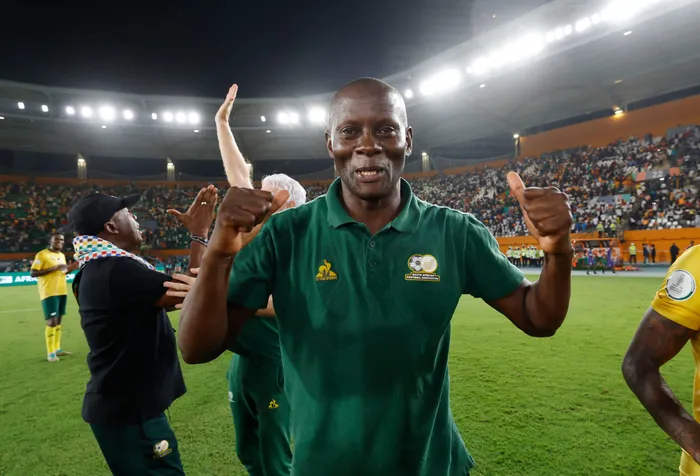Helman Mkhalele: A full-circle journey to the senior men's World Cup

Helman Mkhalele, the Bafana Bafana legend who will return to the Fifa World Cup as a coach in 2026 after playing in the 1998 edition. | BackpagePix
Image: BackpagePix
Helman Mkhalele is the coach—and the man—he always believed he could be. He has completed a full-circle career that many of his peers can only dream of.
Mkhalele will now coach at the 2026 FIFA World Cup in North America, 28 years after he represented Bafana Bafana at their maiden global showpiece in France.
This incredible milestone couldn’t be more fitting for the man. Since becoming Bafana's assistant coach under Hugo Broos, Mkhalele has proven his worth. When you watch him on the pitch during training sessions or on the bench on match day, it’s clear he’s not a man of many words.
Despite the ample freedom Broos has given him to issue instructions to players on the field, Mkhalele only steps in when necessary. He’s not a glorified figurehead—his minimal talk doesn’t mean he lacks influence within the team.
Broos has spoken glowingly of Mkhalele as his only assistant since the departure of Cedomir Janevski, stating:
“I love this man. You touch Helman, you touch me!”
The Belgian wasn’t being modest with his praise. He knows that if it weren’t for the 55-year-old, Bafana wouldn’t be the team they are today.
The South African national team is arguably the most improved side on the continent. They reached the podium for the first time in over two decades at the most recent AFCON, using a largely local-based squad.
And that’s not all. They qualified for the upcoming AFCON in Morocco this December without a single defeat in the group stage qualifiers—again, with mostly local-based players.
They raised the bar on Tuesday night in Nelspruit, Mpumalanga. Fielding a fully local-based squad in a must-win World Cup qualifier against Rwanda, they got the job done—although they were helped, in part, by arch-rivals Nigeria thrashing Benin in the other group match.
Amid the celebration and gratitude for guiding the team to their first World Cup since 2002, there was a notable mention in Broos’ speech:
“I would like to thank my staff—they helped me a lot, especially Helman. You know that I like him very much. Without him, we wouldn’t have achieved this (World Cup qualification).”
Mkhalele’s influence isn’t only rooted in his playing career or his deep knowledge of Bafana and South African football—it’s also in his nurturing abilities.
He was involved in the U20 and U23 national team structures, the very feeder systems for Bafana. So the recent integration of young talents like Relebohile Mofokeng, Mohau Nkota, and Mbekezeli Mbokazi, among others, reflects the shared vision between him and Broos.
The duo also shares the same mindset about giving players second chances.
“Helman (Mkhalele, my assistant) and I spoke, and we agreed to give him another chance,” Broos said, referring to the return of the talented Sipho Mbule to the team.
Granted, Broos may still be asked who he believes should succeed him when he retires after the World Cup, and it remains to be seen whether he will name Mkhalele.
But for now, “Midnight Express” deserves to be celebrated. He has played a pivotal role in restoring the pride of the nation. And without a doubt, before he retires, his name will be listed among the greats who have both played in and coached at the world’s biggest footballing event!
Related Topics: